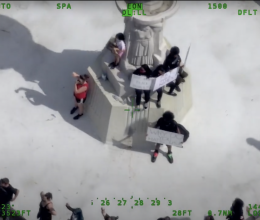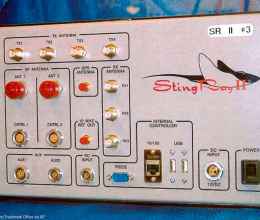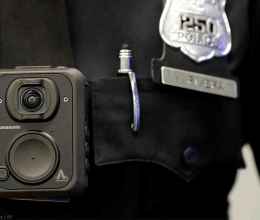It's been almost exactly a month since President Obama welcomed a debate about government surveillance, saying it was healthy for our democracy, but we have yet to see the debate begin. A debate entails a discussion on a particular matter in which opposing arguments are put forward. But, as we are now seeing, if only one side has the information relevant to the matter, there can be no meaningful debate.
Consider what information has (and has not) been made public in the month since the Guardian revealed that the government collects and stores data on virtually every phone call made to, from or within the United States, and disclosed the existence of PRISM, the NSA program that collects iInternet material, including search history, email content, file transfers and live chats.
The administration rushed to assure the public that the surveillance was legal. Yet the interpretations of the Patriot Act and the Foreign Intelligence Surveillance Act (FISA), on which the administration relies to carry out the surveillance programs, remain secret -- despite the fact that many in Congress question, at the very least, the interpretation of the Patriot Act. Indeed, on June 27, a bipartisan group of 26 U.S. senators -- more than a quarter of the senate -- wrote to Director of National Intelligence James Clapper, warning, in effect, that the government has misinterpreted the Patriot Act (or read the law differently from the legislators who drafted it) to justify the phone call tracking program. Without an understanding of what the government thinks the federal statute means, the public is left out of this critical part of the debate.
The administration and its defenders also told the public that the surveillance was subject to oversight. But the FISA court that oversees the government's surveillance programs operates in secret and functions as a rubber stamp. Between 2009 and 2012, out of 6,500 government requests for warrants the court received, it rejected only one. Furthermore, many in Congress were unaware of the full scope of the government's surveillance. Senator Susan Collins, who serves on the Intelligence Committee this year, and served on the Homeland Security Committee last year, was not briefed on the NSA's PRISM program on Internet surveillance. The government unironically suggested that she could have asked for a briefing on the program, ignoring that she didn't know it existed. And, when a congressional oversight committee called Clapper to testify and Senator Ron Wyden asked him if the NSA collected any type of data on Americans, Clapper lied, as he later admitted.
Most consistently, however, the administration and its defenders have told the public that the surveillance has been effective. NSA Director Keith Alexander told a Senate committee, on June 12, that the agency's surveillance programs foiled "dozens" of terrorist plots. Alexander testified before a House committee on June 18, stating that the phone and Internet surveillance programs had prevented more than 50 terrorist plots since 2001.
Nonetheless, the details supporting the claims that NSA surveillance contributed materially to the investigations remain classified; as a result, the public is unable to assess the argument that the surveillance in fact has protected our national security.
Moreover, the purported tally of successes has blurred the line between the program amassing Americans' phone call data and PRISM. Alexander lumped the two programs together when he testified. But, when FBI Director Robert Mueller testified before a congressional committee on June 19, Senator Patrick Leahy specifically asked for the number of cases in which the phone call tracking program had played a "critical role." Mueller said: "I think there will be anywhere from 10 or 12, where [the phone call tracking program] was important in some way, shape or form." Mueller later admitted, however, that his estimate included information from both the phone call tracking program and PRISM, and that he couldn't say precisely what program was responsible for which successes.
This conflation makes it impossible to assess the phone surveillance program's unique value, if any, in protecting national security. Indeed, it is not only the public but also the large group of senators that needs this information. The senators' letter to Clapper lists several questions they want answered, including whether there have been any specific instances in which intelligence gained by reviewing phone records of Americans obtained through mass collection proved useful in thwarting a particular terrorist plot and that intelligence could not have been obtained without the mass collection. The administration has deliberately sought to focus the discussion on a purported cost-benefit analysis, but the public can't judge the purported benefit without the answer to this question.
Accordingly, in the debate we are supposedly having over surveillance, the public knows only what little the administration has been willing to share. The public still doesn't have the most critical piece of information it needs: the secret legal arguments that government relies on to justify the surveillance. The public also doesn't have the information it needs to judge the administration's claims about the program's utility, much less a full understanding of the threat the programs pose to privacy. So far, this has been nothing more than a public relations campaign, or the debate equivalent of one hand clapping.
Hector Villagra is Executive Director of the ACLU of Southern California; Cross-posted from Huffington Post
It takes two to debate, or the sound of one hand clapping
Related Issues
Related content

Recordings Show the California Highway Patrol’s Aerial Surveillance...
November 16, 2021Privacy Lawsuit: Your Scooter GPS Data is Being Tracked
June 8, 2020
Prevent Expansion of Facial Recognition Tech (Oppose AB 2261)
May 21, 2020ACLU of CA Opposes Bill Enabling Face Recognition Expansion
May 4, 2020
ICE and CBP Are Secretly Tracking Us Using Stingrays. We're Suing.
December 11, 2019